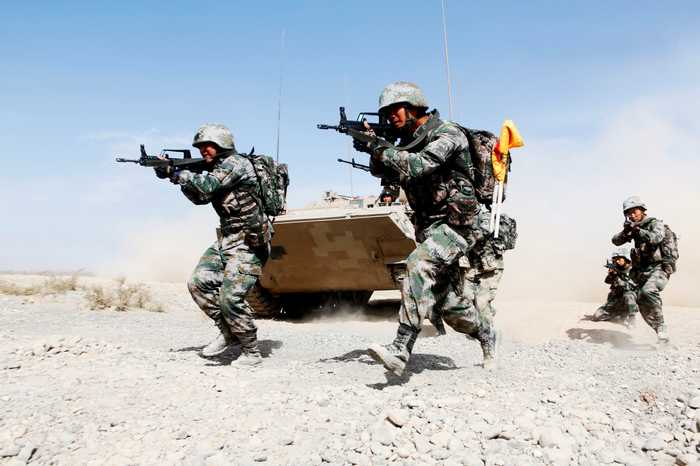Published 18:44 IST, December 24th 2024
China Warns of Arms Race as Philippines Acquires Advanced Typhon Missile System
As tensions escalate in the South China Sea due to China's aggressive actions, the Philippines has announced plans to acquire the U.S. Typhon missile system.
- Defence
- 3 min read
Manila, Philippines - The Philippines and China are locked in an increasingly tense relationship, as Beijing's assertive actions in the South China Sea continue to escalate. These include ramming Filipino vessels and harassing fishing boats, pushing the region into deeper instability. While China remains one of the Philippines' largest trading partners, its expansionist policies, disregard for international rulings, and militarization of disputed territories have eroded trust. President Ferdinand Marcos Jr.'s tougher stance reflects growing frustration among Filipinos regarding China's actions, which are perceived as a direct threat to national sovereignty and regional stability.
The Typhon Missile System: A Game-Changer for the Philippines
On December 23, 2024, the Philippines announced plans to acquire the U.S. Typhon missile system, a significant leap in the country's defence modernization efforts. Philippine Army Chief Lieutenant-General Roy Galido stressed the system's strategic importance, stating that it would bolster the country’s ability to defend its exclusive economic zone (EEZ) and maritime borders. Developed by Lockheed Martin, the Typhon missile system is a cutting-edge platform capable of firing Tomahawk cruise missiles and Standard Missile-6 (SM-6).

The Typhon system’s versatility is unparalleled, allowing it to engage threats from land, air, and sea. With a range of up to 480 kilometres (300 miles), it is a critical asset for deterring potential aggression. The system aligns with the Philippines’ broader efforts to modernize its military and project force in contested waters. It also serves as a deterrent against China’s increasing militarization in the region, strengthening the country’s defensive posture.
U.S.-Philippines Alliance
The acquisition of the Typhon system underscores the deepening ties between the Philippines and the United States. The two nations have a longstanding alliance, rooted in the Mutual Defense Treaty, which obligates the U.S. to come to the Philippines' defense in the event of an attack. The partnership has been further enhanced through initiatives such as the Enhanced Defense Cooperation Agreement (EDCA), which has identified four new sites for joint use, and the annual Balikatan military exercises, which remain the largest of their kind.
U.S. President Joe Biden reaffirmed his administration’s commitment to Philippine security, emphasizing the shared goal of maintaining peace and stability in the Indo-Pacific region. The U.S. has also pledged to transfer advanced military equipment and increase cooperation between coast guards to counter maritime threats.
China's Condemnation and Escalating Tensions
China has vehemently opposed the Philippines’ move to acquire the Typhon missile system, warning that it could destabilize the region and spark an arms race. Chinese Foreign Ministry spokesperson Mao Ning called the acquisition “provocative” and claimed it enabled “external forces” to fuel regional antagonism. Beijing has urged Manila to reconsider its decision, emphasizing that Southeast Asia needs peace and prosperity, not military escalation.
Despite these warnings, Lieutenant-General Galido has remained resolute, stating that the Philippines will not be swayed by external pressures. He emphasized that the country’s decision to acquire the Typhon system is rooted in its sovereign right to protect its interests and ensure national security.

As Beijing continues its aggressive actions in the South China Sea, Manila's decision to enhance its defence capabilities is a clear signal of its intent to stand firm against coercion. The Typhon missile system, backed by a strong U.S.-Philippines alliance, represents a strategic step toward safeguarding the nation’s territorial integrity and deterring external threats.
However, the move also highlights the precarious nature of regional geopolitics, where every action risks further escalation.
Updated 18:44 IST, December 24th 2024